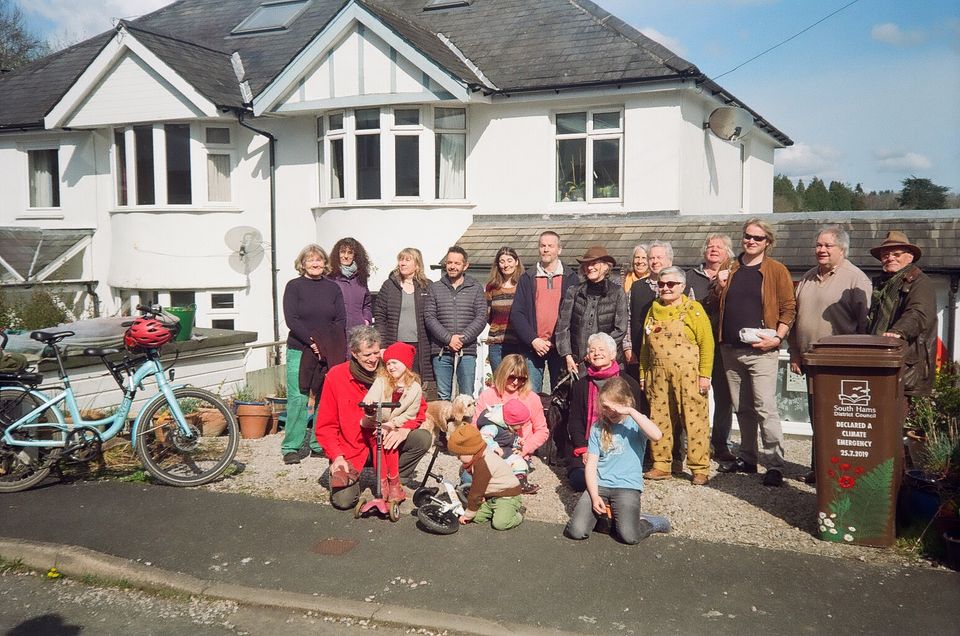“The Transition Streets programme helps people reduce their bills and live more sustainably by taking practical action together.” [Three Rivers District Council]
.
Following on from the promise of ‘transition’ to something more sustainable – made at COP28 earlier in the month – the obvious question was asked: What is ‘transition’?

As reported last year, transition initiatives are happening … everywhere. And one initiative which has been catching some attention has been the Transition Streets project, which started off in the birthplace of the Transition Town movement itself, namely Totnes. As the strapline to the founder website says, this initiative is about bringing the Totnes community together, one street at a time:
Transition Streets is an award-winning project that brings neighbours together. It creates more caring, more sharing and more connected streets and helps people reduce their carbon footprint and cost of living through taking practical action together.
A year ago, these pages looked at Transition Streets as a route to saving money, saving the planet:
“The idea is to bring together a group of neighbours to explore how to improve life on their street. And each group that has formed so far has developed their own innovative ways to tackle the cost of living crisis, save the planet and overcome social isolation.”
And the initiative has been inspirational in showing a way forward for building community resilience:
Even really local space to connect can be transformative, as the Transition Streets project has found. Developed by Transition Town Totnes in 2009 and replicated internationally, it brings together six to eight households at street level to explore issues around food, energy, travel, water, resources use and their vision for their street. The first participants saved £570 in bills and over a ton of carbon per household, as working together made it easier to take action. But more than that, the invitation to meet weekly in each other’s homes, share food and questions changed people’s relationships for the long term.
Ruth believes the most profound impact of Transition Streets is the sense of connection. One street rallied round to care for one resident so she could be discharged from hospital. In another, a ramp was built so two housebound neighbours could meet up every day. “People who were previously quite isolated have people they can call on, that has such a huge impact on how they look at the world and feel part of a web of connection. That’s the thing about a spider’s web – the tighter the web, and the more connections, the less likely it’s going to break.”
To the extent that councils are taking an interest – from the home of Totnes itself, namely South Hams, to the Three Rivers District Council [aka Rickmansworth] helping a local Transition Street project to get off the ground, showing that communities can conserve energy and save money [links are working!] under the scheme:
Three Rivers District Council and its partner, Grand Union Community Energy – a community energy cooperative – are on the hunt for a street with a group of six to eight households within the district to pilot the newly launched Transition Streets programme.
Under Transition Streets, small groups of neighbours meet in each other’s homes over a few months to complete a FREE programme of seven short, home-based workshops covering key topics to save money and cut carbon emissions: energy, food, travel, water, resource use, and nature. The Transition Streets programme helps people reduce their bills and live more sustainably by taking practical action together. The scheme will be funded by a slice of a £298,000 grant that was awarded to the council and its partners earlier this year from Innovate UK, which is the UK’s national innovation agency.
…